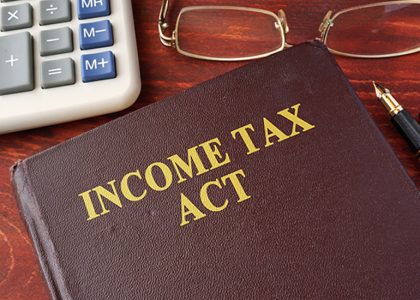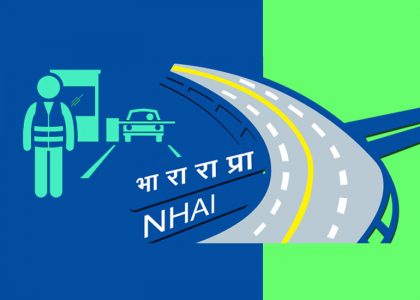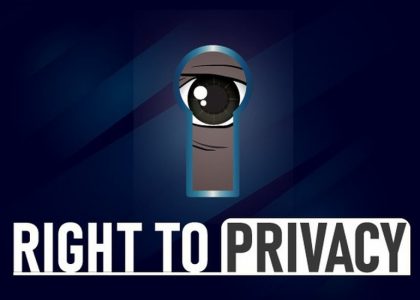This Article Deals With The Subject And Recent Development In The Field Of The Natural Justice And Law Amidst The Corona Virus Pandemic. This Article Put Special Focus On The “Audi Alterem Partem” And In This Light Try To Explore The Position Of The Same Pre And Post COVID-19.
INTRODUCTION
Withering Of The Concept Of Justice Starts At The Moment When A Party Is Not Allowed To Establish His Case. In India, Judicial Procedures Are Abundantly Safeguarded By The Procedure Established Under The Different Statutes. But, It Needs To Be Borne In Mind That Quasi-Judicial And Administrative Body Are Not Bound By The Laws As Stipulated Under The Provisions Of Civil Court. The Law Of Evidence Does Not Apply In Its Strict Sense Before The Quasi-Judicial And Administrative Body. So, It Becomes A Matter Of Grave Concern That Principle Of Natural Justice If Ignored In Tax Proceedings Then A Grave Prejudice Will Be Done. Some Safeguard Needs To Be Put Forth In Order To Check That There Is No Miscarriage Of Justice.
Here Comes Into Play The Divine Law Of Natural Justice. It Is The Basic Law Of Nature Which Not Ought To Be Derived From Any Statute Or Constitution. The Concept Is So Old That It’s Reference Can Be Found In Mythology Also. The God Did Not Immediately Punish The Adam And Eve For Their Original Sin, But Gave Them A Trial First. It Is Evident From These Lines As Follows:
“And He Said, Who Told Thee That Thou Wast Naked? Hast Thou Eaten Of The Tree, Whereof I Commanded Thee That Thou Shouldest Not Eat?
And The Man Said, The Woman Whom Thou Gavest To Be With Me, She Gave Me Of The Tree, And I Did Eat.
And The LORD God Said Unto The Woman, What Is This That Thou Hast Done? And The Woman Said, The Serpent Beguiled Me, And I Did Eat.”
In The Similar Manner Anecdotes Can Be Found In The Indian History And Mythology. It Is To Be Noted That In Indian History The Concept Of Integrity Was Sacrosanct And The Judicial Code Of Integrity Was Very Strict. Brihaspati Says: “A Judge Should Decide Cases Without Any Consideration Of Personal Gain Or Any Kind Of Personal Bias; And His Decision Should Be In Accordance With The Procedure Prescribed By The Texts. A Judge Who Performs His Judicial Duties In This Manner Achieves The Same Spiritual Merit As A Person Performing A Yajna.”
Says Katyayana: “If The King Wants To Inflict Upon The Litigants (Vivadinam) An Illegal Or Unrighteous Decision, It Is The Duty Of The Judge (Samya) To Warn The King And Prevent Him.”
The Concept Of Dharma Above All Can Be Found In Epic Age Also, Hon’ble Justice S.S. Dhavan Gives Following Examples To Substantiate This, Rama, The King Of Ayodhya, Was Compelled To Banish His Queen, Whom He Loved And, In Whose Chastity, He Had Complete Faith, Simply Because His Subjects Disapproved Of His Having Taken Back A Wife Who Had Spent A Year In The House Of Her Abductor. The King Submitted To The Will Of People Though It Broke His Heart. This Example Enunciates How Perfectly Principle Of Natural Justice Was Practiced In Ancient India.
MEANING AND ELEMENTS OF PRINCIPLE OF NATURAL JUSTICE:
The Word Natural Justice Is Derived From The Roman Word ‘Jus-Naturale’ And ‘Lex-Naturale’ Which Planned The Principles Of Natural Justice, Natural Law And Equity. In A Famous English Decision In Abbott Vs. Sullivan (1952) 1 K.B.189 At 195, It Is Stated That “The Principles Of Natural Justice Are Easy To Proclaim, But Their Precise Extent Is Far Less Easy Of Define”. In The Contemporary World The Principle Of Natural Justice Can Be Divided Into Three Rules And These Rules Are (1) Hearing Rule, (2) Bias Rule And (3) Reasoned Decision.
There Are Umpteen Numbers Of The Cases Decided By The Hon’ble Supreme Court And Several High Courts Which Are Sufficient To Summarize And Explain The Two Essential Elements Of Natural Justice Namely:
- No man shall be Judge in his own cause
- Both sides shall be heard, or audi alteram partem
In The Case Of A.K. Kraipak Vs. Union Of India (AIR 1970 SC 150), The Supreme Court Said That The Aim Of Natural Justice Is To Secure Justice Or To Put It Negatively To Prevent Miscarriage Of Justice. These Rules Can Operate Only In Areas Not Covered By Any Law Validly Made, In Other Words, They Do Not Supplant Law, But Supplement It. Meaning Thereby, The Principle Of Natural Justice Cannot Take Over A Codified Law. It Cannot Be Used As A Tool Parallel To That Of Codified Law But, Where The Law Is Silent Or There Are Patches In Law Then Natural Justice Can Be Used To Overcome And Fill Such Cavity In The Law. As Held In The Landmark And Celebrated Case Of Maneka Gandhi V. Union Of India (AIR 1978 S.C.597) That, “It Is Now Firmly Established That In The Absence Of Express Provisions In Any Statute Dispensing With The Observance Of The Principles Of Natural Justice, Such Principles Will Have To Be Observed In All Judicial, Quasi-Judicial And Administrative Proceedings Which Involve Civil Consequences To The Parties.”
In The Case Of Bharti Reddy V. State Of Karnataka (2018) 6 SCC 162 (SC) The Hon’ble Court Held That “Where The Order Is Passed By The Jurisdictional Authority Without Hearing The Party Affected, Which Entails Injury To A Constitutionally Guaranteed Right To The Affected Party. It Held That Such Orders May Be Treated As Void And Ineffectual To Bind The Parties From The Beginning.
With Change In Time The Concept Of The Natural Justice Has Evolved Greatly. In The Sense That What Particular Rule Of Natural Justice To Be Applied Depends Upon The Facts Of The Case, The Statute Governing The Issue, The Rules To Be Applied, The Circumstances Involved Etc. The Whole Distinction Between An Administrative Act And Judicial Act Does Not Survive Any Longer. As Ruled Out In The Celebrated Cases Discussed Above, Every Administrative Order Which Involves Civil Consequences Must Follow The Rules Of Natural Justice.
In Indian Judicial Context, This Concept Was Introduced At Very Early Time The Case Of Mohinder Singh Gill Vs. Chief Election Commissioner, The Court Held That The Concept Of Fairness Should Be In Every Action Whether It Is Judicial, Quasi-Judicial, Administrative And Or Quasi-Administrative Work.
The Natural Justice Is The Essence Of Fair Adjudication Which Is Deeply Rooted In Tradition And Conscience Of The Indian Judiciary. Natural Justice Should Be Ranked As Fundamental. The Basic And Most Fundamental Reason Of Following The Principles Of Natural Justice Is The Prevention Of Miscarriage Of Justice.
FAIR HEARING:
One Of The Planks On Which The Oft-Quoted Aphorism “Not Only Must Justice Be Done; It Must Also Be Seen To Be Done” Is Based On Is A Proper Opportunity Shall Be Provided To A Party To Establish His Case. The Principle Of Audi Alterem Partem Literally Means “To Hear The Other Side”. This Principle Advocates For A Necessity Of Providing A Fair Hearing. A Corollary Has Been Deduced From The Above Principle Of Audi Alteram Partem, Namely “Qui Aliquid Statuerit Parte Inaudita Alteram Actquam Licet Dixerit, Haud Acquum Facerit” That Is, He Who Shall Decide Anything Without The Other Side Having Been Heard, Although He May Have Said What Is Right, Will Not Have Been What Is Right Or In Other Words, As It Is Now Expressed, Justice Should Not Only Be Done But Should Manifestly Be Seen To Be Done.
In India The Principles Of Natural Justice Are Firmly Imbibed In The Articles 14 And 21 Of The Constitution. Article 21 Emits An Understanding Of Fairness Whereas Article 14 Strikes At The Arbitrariness.
Here The Author Is Restricting This Article And Only Discussing On The Concept Of Audi Alteram Partem And Not Delving Into The Other Limbs Of The Principles Of Natural Justice. This Concept Of Audi Alteram Partem Can Be Sub-Classified Into Three Parts And These Are As Follows:
- party to an action is prima facie entitled to be heard in his presence;
- He is entitled to dispute his opponent’s case, cross examine his opponents witnesses and entitled to call his own witnesses and give his own evidence before Court.
- He is entitled to know the reasons for the decision rendered by a Court/Tribunal
The Principle Of Audi Alteram Partem Enunciate That Let The Other Side Be Heard. In Simple Terms The Other Party Shall Not Be Left Unheard Before Passing Any Order. The Scale Of Justice Needs Both The Party To Be Given An Equal Opportunity Before Reaching To A Conclusion.
The Concept Of Natural Justice Is Not Some Divine Natural Justice. It Is Not Like A Jungle Rule As A Lion Will Hunt Sheep Or Lamb Or Might’s Right. This Is A Concept Which Tries To Make A Conducive Environment Where Lion And Lamb Can Coexist Together. A More Apt Term For This Concept Is Procedural Fairness. The Natural Justice Hits At The Core Where There Is Any Procedural Impropriety.
The Concept Of “Audi Alterem Partum” Comes Of A Great Significance Where The Law Is Silent About The Procedure To Be Followed. The Courts Are Bound By The Codified Laws Of The Land But The Tribunals And Other Quasi-Judicial Authorities Are Not Bound To Follow The Civil Procedure Or Evidence Act In Toto.
Where The Authorities Are Not Bound By The Codified Laws Then There Are Extreme Chances Of Miscarriage Of Justice. One Of The Cardinal Reasons Is With Great Power Comes Great Responsibility And Non-Observance Of Such Power Can Lead To Miscarriage Of Justice. Deprivation Of Fairness Negates The Point Of Having Laws In The First Place.
Right To Fair Hearing Has Two Elements I.E. Written And Oral Submission. It Cannot Be Said That Both The Elements Need To Be Met. The Courts Have A Unanimous Stand On The Matter That The Oral Hearing Is Not An Integral Part Of The Fair Hearing. In Union Of India V. J. P. Mitter The Court Refused To Quash The Order Of The President Of India In A Dispute Relating To The Age Of High Court Judge On The Ground That The President Did Not Grant Oral Hearing Even On Request. The Court Was Of The View That When The Person Has Been Given An Opportunity To Submit His Case In Writing, There Is No Violation Of The Principles Of Natural Justice If Oral Hearing Is Not Granted.
A Fair Hearing Begins With A Fair Time To Represent The Case Before The Authority. In A Case Where Reasonable Time Is Not Provided To Build Or Defend The Case Then It Is A Gross Violation Of Principle Of Fair Hearing. In Smt. Ritu Devi V. CIT, The Court Held That The Assessee Has Not Been Provided With A Fair Opportunity Because Only A Single Day Was Provided. Thus, After A Notice Is Served, A Reasonable Amount Of Time Should Be Given To The Party To Present The Case And The Evidence.
A Fair Hearing Is A Deep Ocean And It Has Multiple Angles To It. Opportunity Of Cross Examination Is Also A Vital Right Under The Fair Hearing. The Hon’ble Supreme Court In The Case Of Andaman Timber Industries V. CCE (2015) 281 CTR 0241 (SC) Held That According To Us, Not Allowing The Appellant To Cross-Examine The Witnesses By The Adjudicating Authority Though The Statements Of Those Witnesses Were Made The Basis Of The Impugned Order Is A Serious Flaw Which Makes The Order Nullity In As Much As It Amounted To Violation Of Principles Of Natural Justice Because Of Which The Assessee Was Adversely Affected.
The Apex Court In The Case Of Kishinchand Chellaram V. CIT [1980] 4 Taxman 29 (SC) Held That The Assessing Officer Cannot Gather Material Or Evidence At The Back Of The Assessee And Use It Unilaterally. Evidence Has To Be Tested On Cross Examination. Failure To Afford Opportunity To The Assessee To Cross-Examine A Third Party Whose Evidence Is Sought To Be Utilised Would Make The Assessment Void.
Another Important Aspect Of Fair Hearing Is Notice. If No Notice Is Served To The Party Who’s Right Is In Question And An Order Is Passed Then It Is Not A Fair Procedure At All. A Reasonable Time And A Proper Notice Shall Be Given So As The Defendant Has The Knowledge Of Proceeding Against Him And Further Has Ample Time To Prepare For The Same. The Apex Court Held That Sona Builders V. UOI (2001)251 ITR 197 (SC) That
“Only Three Days’ Notice To Respond The Notice – Order Of Appropriate Authority Had To Be Quashed.
There Is One More Very Interesting Angle To The Fair Hearing That’s A Person Who Hears Shall Pass The Order. In Gullupalli Nageshwara Rao V. Apsrtc Is A Case Where An Administrative Action Was Challenged On The Ground That The One Who Decides Did Not Hear. In This Case, The Petitioners Challenged The Order Of The Government Confirming The Scheme Of Road Nationalisation. The Secretary Of The Transport Department Gave The Hearing But The Final Decision Came From The Chief Minister. The SC Held That This Divided Responsibility Was Against The Concept Of Fair Hearing Because If One Who Decides Does Not Hear The Party, He Gets No Opportunity Of Clearing Doubts In His Mind By Reasoned Arguments.
“FAIR HEARING” AND “COVID-19”
The Theory Of “Principles Of Natural Justice” Holds Good When The Situation Or The Environment Remains Constant From Time To Time. The Question Arises Is Whether The Theory Of Principle Of Natural Justice Still Holds Good When The Environment, Because Of External Effects, Becomes Non-Conducive. An External Force Can Make Justice Non-Deliverable. The Theories Are Propounded Based On The Assumptions And When Those Assumptions Are Not In The Place Then The Theory Tends To Whither.
Let Us Analyse What Will Happen When The Justice Is Not Reachable Underlying The COVID-19 Pandemic. The COVID-19 Or The Coronavirus Pandemic Which Galloped Throughout The World At An Unimaginable Rate Forced The Government Established By Law To Take Some Decisions Which Were Unprecedented And Never Heard Of. The Lives Were And Are At Risk. The Risk Glaring In The Face Is Much More Than Some Light Imperils, The Risk Here Pushed The Humanity At The Brinks And Brims Of Being Perished.
Under Such Imminent Threat Of Death And Fear Of Life, Nobody Was And Is Ready And Willing To Approach Any Judicial Forum Or Interact With Unknown Person Owing To Government Strictures And Reasonable Fear. Further, The Steps Which Were Taken By The Government Were Harsh And Unprecedented. From March 23, 2020 The Government Of India Implemented A 21 Day Nationwide Lock Down To Fight The Menace Of Novel COVID-19. This Was Further Extended From Time To Time. Underlying The COVID-19 Situation The Courts Suspended Their Working. The Health Ministry, The Home Ministry, And Other Ministries Issued Various Orders, Circulars, And Strictures From Time To Time To Tackle And Make People Aware Of The Novel COVID-19.
The Standard Operating Procedure Laid Down By Different Ministries Reflects A Procedure Under Which, The Offices Were Working At One Third Of The Total Working Capacity. Many Private As Well As Government Offices Were Closed And Non-Functioning. There Was A Total Ban On Public Meetings, Congregations, And Mass-Processions.
Under Such Unprecedented Conditions A Person Cannot Be Expected To Approach The Court And Argue For His Own Cause. A Breach Of Principle Of Natural Justice Became A Non-Avoidable And Inevitable Situation. The Court Came Up With Different Ideas To Tackle The Menace Of COVID-19 And Video Conferencing Is One Of The Alternative.
The Hon’ble Supreme Court Has Reportedly Heard More Than 15,000 Matters Through Video Conferencing Since March 23, When The Lockdown Was Announced In Wake Of The COVID-19 Pandemic. The Apex Court Completed 100 Days Of Virtual Court Hearings And Disposed Of Approximately 4300 Cases Till Now. Whole 1022 Benches Were Constituted To Hear The Cases, Over 50000 Advocates Appeared Before The Virtual Courts.
Let Us Analyse What Are The Steps Taken By The Indian Court Where There Is A Breach Of The Principle Of Natural Justice Because Of Novel Corona Virus.
The Novel Corona Virus Has Made The Movement Restrictions Under The Epidemic Diseases Act, 1897. This Restriction In Movement And Norms Of Social Distancing Coupled With Fear Of Contracting Corona Virus Has Made The Justice A Distant Idea. The Hon’ble Supreme Court Of India In Suo Motu Writ No. 5/2020, Dated 06.04.2020, Issued Directions By Exercising The Power Conferred On The Hon’ble Supreme Court By Art. 142 Of The Constitution Of India. The Apex Court Directed That Measures Shall Be Taken To Reduce The Need For The Physical Presence Of All Stakeholders Within The Court Premises, And To Secure The Functioning Of Courts In Consonance With Social Distancing Guidelines And Best Public Health Practices Shall Be Deemed To Be Lawful.
- Remankhan Belin v. State of Gujrat, Special C.A. No. 7307/2020, dated 08/06/2020
Recently, A Division Bench Of The Hon’ble Gujrat High Court In The Case Of Remankhan Belin V. State Of Gujrat, Special C.A. No. 7307/2020, Dated 08/06/2020, Got An Opportunity To Decide A Case Where The Petitioner Preferred Not To Remain Present In The Hearing And Thereafter, An Order Was, Dated 14.05.2020, Passed In Absence Of The Petitioner. The Petitioner Challenged The Order On The Ground That That No Opportunity Of Actual Hearing Was Given. The Hon’ble Court Held That Because Of The Pandemic Corona Virus COVID-19, The Petitioner Could Not Remain Present And An Order Passed Is Therefore, Smacks The Vice Of Breach Of Principles Of Natural Justice. Accordingly, The Hon’ble Court Allowed The Petition And Quashed The Impugned Order.
- Walchandnagar Industries Limited v.The Commercial Tax Officer and Ors., W.P.No. 8425 and 8451 of 2020, dated 11.05.2020
The Hon’ble Andhra Pradesh Court In The Matter Of Walchandnagar Industries Limited V.The Commercial Tax Officer And Ors., W.P.No. 8425 And 8451 Of 2020, Dated 11.05.2020, Where The Request Of Adjournments By The Petitioner Before The Adjudicating Authority Were Refused And Denied And Accordingly An Adverse Order Was Passed. The Petitioner Raised The Plea Before The Hon’ble Court That Because Of Prevalent Pandemic COVID-19 Reply Could Not Be Filed And Further, That The Impugned Order And The Penalty Order Were Also Passed Without Hearing The Petitioner. The Hon’ble Court Keeping In Mind The Underlying Condition Of COVID-19 And The Problem Faced By The Petitioner In Coordinating With His Office In Gathering Old Records, Allowing The Petition, Set Aside The Impugned Order Passed By The Authority.
- M/S SVR Electro Projects Pvt. V. State Tax Officer, No.9522 of 2020, dated 10 July, 2020.
The Hon’ble Telangana High Court In The Matter Of M/S SVR Electro Projects Pvt. V. State Tax Officer, Where The Petitioners Claimed That They Did Not Have Adequate Opportunity To File The Objections With Supporting Material Because Of The COVID-19 Lockdown Imposed By Both The Central And State Governments From 20.03.2020 And Because Of Which The Petitioner’s Office Remained Closed And The Objections Could Not Be Filed. The Hon’ble Court Held That Petitioner Was Denied Of Reasonable Opportunity.
These Orders Show A Deviation From The Normal Application Of Principle Of Natural Justice As An Opportunity Was Given And Provided To The Petitioner. But, The Court In Its Own Wise Judgement And Prudence Concluded That A Hearing Cannot Be Said To Be An Actual Hearing Where The Availing Of Opportunity Comes With An Imminent Threat To Life. Corona Stint Is Not A Normal Situation And The Courts Repose Its View By Ruling That In Extraordinary Times Extraordinary Orders Need To Be Passed.
WAY FORWARD:
Looking At The Extraordinary Times That We Are Living Into, The Judiciary As Well As The Legislature And Government Of India Has Taken Some Steps To Relax The Strict Procedures Of Compliance And Further Incorporated Latest Technology In Order To Remove The Impediments On The Way Of Justice System. Amongst Others, One Of The Most Pioneering Techs Used By The Judiciary Is Video Conferencing. Video Conferencing Eliminated And Surmounted The Vices Of Personal Hearing Which Were Becoming Hurdles Because Of Novel Corona Virus. It Seems That, Given The Circumstances, The Video Conferencing Is At Least Providing A Better Platform For Redressal Then No Platform At All. It Will Be Interesting To See How Further The Judiciary Is Willing To Advance And Deviate From The Cocoon In Which It Was Sitting From The Ages.
But The Question Is Whether A Right Of Fair Hearing Can Be Suspended In The Case Of Pandemic. The Hon’ble Court In The Case Of Swadeshi Cotton Mills V. Union Of India Held That The Word “Immediate” In Section 18-A Of The Industries (Development And Regulation) Act Cannot Stand In The Way Of The Application Of The Rules Of Natural Justice. The Observed That This Rule Of Fair Play ‘Must Not Be Jettisoned Save In Very Exceptional Circumstances Where Compulsive Necessity So Demands. The Court Must Make Every Effort To Salvage This Cardinal Rule To The Maximum Extent Possible, With Situational Modifications.”
The Hon’ble Court Showed A Path And Stated That Even In The Gloomiest Days, The Right Of Being Heard Shall Be Provided. In Extreme Cases And Very Exceptional Cases Only Such Right Can Be Shirked.
Co-Authors
- Veena Agrawal (CA)
- Abhishek Kumar (Adv)











